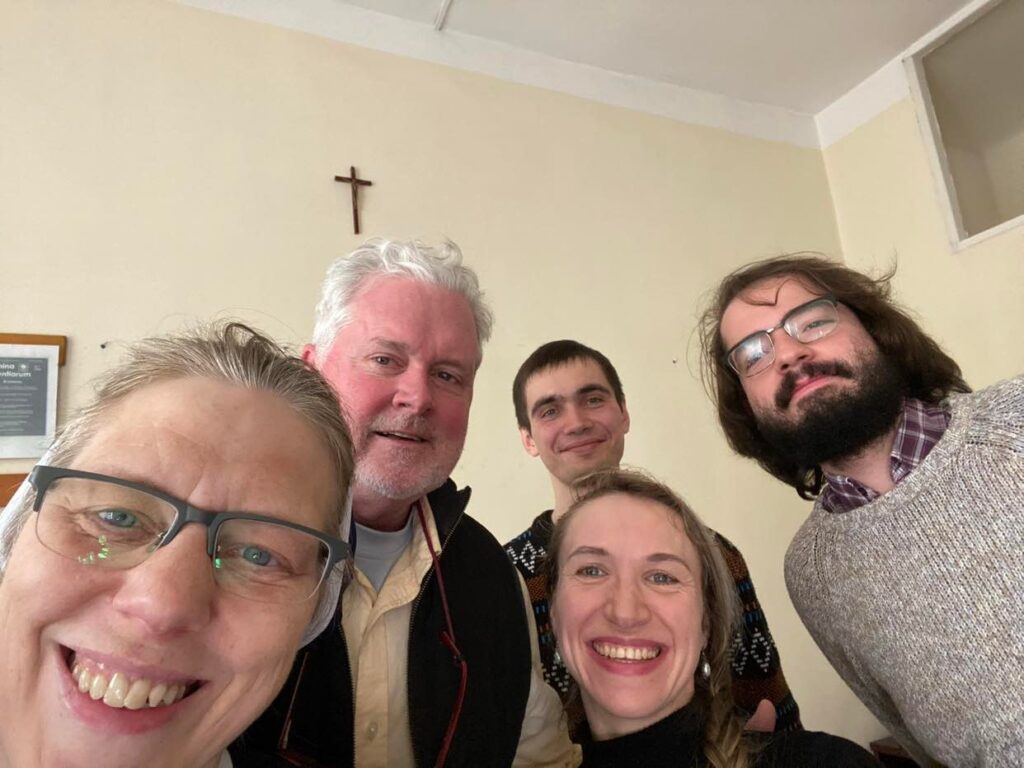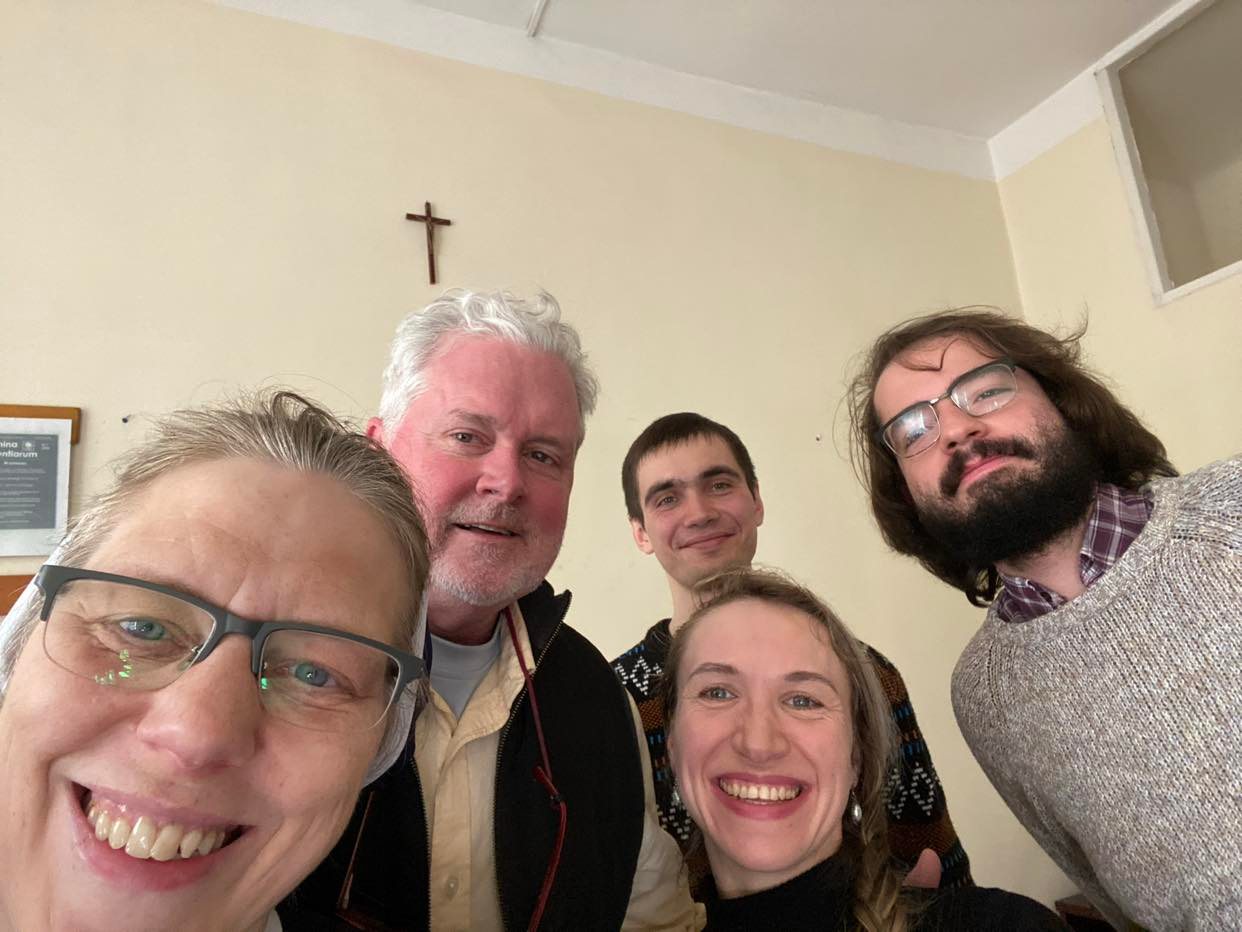Report 6 to Abbot James
I’m nearing the end of my trip; tomorrow is my last day. Today I was invited to Sr Teresa Obolevitch’s PhD seminar to participate in a theological conversation on the metaphysical meaning of War.
Sr Teresa is a world authority on Russian philosophy and theology and teaches at JPII University here in Krakow. I met her last summer when I was here with my friends Aaron Riches and Jeremy Sienkiewicz.

Simone Weil’s and Nicolai Berdyaev’s doctrine of War
Sr. Teresa’s seminar class is made up of exclusively Ukrainian and Russian doctoral students. One student is Ilias Stanekzai, who wrote is M. A. on the poetry Milosz. Another of the students, Natalia Petreshak, is a young mother married to Eastern Catholic priest who remains in the Ukraine as chaplain to the Ukrainian army. We discussed, in particular, Simone Weil’s and Nicolai Berdyaev’s doctrine of War – Ilias’ and Natalia’s doctoral subjects, respectively. There was no hint of detached theory.
A Metaphysical View of War
Both thinkers agree there is an apocalyptic element in their subject’s thinking. War both expresses and reveals human spirits as well as God’s spirit.
Nicolai Berdyaev
Berdyaev believes war is an unmasking of a warring and revengeful spirit in humanity, rooted in unforgiven accumulated grievances, that eventually break open. I will call this an “apocalypse from below,” springing from the depths of our souls.
Simone Weil
Weil, based on her wartime experience and contemplation of the Iliad (The Poem of Force), believed God saw both disputants in a symbiotic entanglement and therefore didn’t take sides. Like the Russian and Ukrainian mothers who just want their sons home safely, God is not cheering on either side “to win.” According to Weil, this is the narrator’s perspective in the Iliad, which is why Weil believed it was of divine inspiration and a moral touchstone for war-time readers.
St Paul Principalities and Powers
I suggested St Paul was likewise apocalyptic and cosmic in his “principalities and powers” language of Ephesians 5-6. Of course, this is in the midst of moral exhortations to Fathers and their obligation to protect the household. Love both nurtures (Berdyaev’s theme) and protects (Weils). St Paul combines these two elements, especially in the household codes which undergird and orient the “domestic church” on its mission in the world.
A cosmic battle
There is nothing theoretical about the domestic church, if we can learn to read St. Paul from the perspective of Eden, not simply Sinai. Paul has a cosmic frame of ref for the domestic church not a simply moral or pragmatic one. In Poland, as in St Paul, the domestic church is on the front lines of a cosmic battle.
The question I’m confronted with is will we learn these lessons of the domestic church? Will we learn to fight as instructed by Berdyaev and love as instructed by Weil? They are complementary truths.
If you can’t spend time with Ukrainian and Russian mothers, then spend some time with St. Paul and his successors. Today’s conversation helped me get clear on that one point! A Metaphysical meaning of War.


Weeping, as I listen to the Great President Zelensky as he address the US Congress and shares his video of his beautiful country, both before and after the terrible assault being created by Putin and the Russian Army.
Lord, please melt the hearts of all leaders of freedom loving people to result in providing the help of Ukrainian people and their nation.
Father, Son and Holy Spirit.
Von, please share these posts and blog to Abbot James sister in Pratt. I think the RC in Pratt will be encouraged
Pingback:My pilgrimage into the domestic church